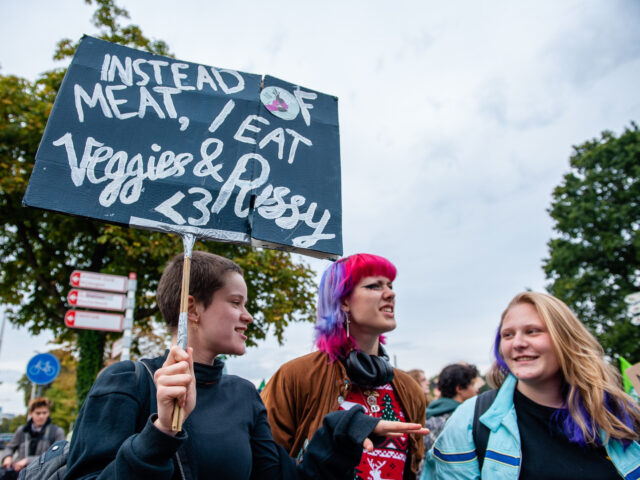High energy and fuel prices have resulted in more “sustainable behaviour” from the public, such as eating less meat, driving less, taking fewer flights, and not showering as frequently, Dutch researchers have claimed.
A study conducted by I&O Research for the Dutch trade journal Binnenlands Bestuur (Domestic Governance) claimed that there has been a noticeable shift in how people are living their lives over the past two years as a result of the growing cost of living crisis, with European energy and fuel prices soaring following lockdowns and the February invasion of Ukraine.
Researchers reported that in comparison to 2020 levels, and the number of people who have solar panels has risen from 26 to 36 per cent, the number of kilometres driven by motorists has fallen by nearly 2,000 per year, and the percentage of people who have flown in the last year has fallen from 53 to 40 per cent, public broadcaster NOS reported.
Unsurprisingly, the impact of the climate change narrative has impacted the youngest the most, particularly in the 18-24 age bracket, which saw a six per cent increase in reporting feelings of “flight shame” as well as an increase in purchasing so-called carbon offsets for their flights.
Bram Wolf, who led the research, said that “Previous studies have shown that we are concerned about the climate, but now this thinking is more often translated into sustainable behaviour.”
One of the biggest shifts over the past year has been the consumption of meat, with just 44 per cent of people reporting that they consume meat or fish daily, down from 49 per cent in 2020, and on average the Dutch ate eat on just 4.2 days per week compared to 4.7 days two years ago.
While the researchers acknowledged that this shift is not necessarily all down to concerns about the climate, they noted that 46 per cent of those polled believed eating meat was bad for the environment, up from 43 per cent in 2020.
Wolf said that he believed the trend is likely to continue: “There are now more flexitarians (semi-vegetarians who eat meat and fish) than people who want meat every day. I expect the group of flexitarians to continue to grow.”
Such supposed benefits of coronavirus lockdowns were previously hailed as advancing its Great Reset agenda by the World Economic Forum in 2020, posting on social media that locking people inside their homes was “quietly improving cities around the world,” claiming that with the closure of businesses air pollution was falling.
Great Reset: Dutch Children Fed Mealworms at School as Meat Alternative https://t.co/QSC7tPkFzA
— Breitbart London (@BreitbartLondon) October 18, 2022
The study comes amid the backdrop of the ongoing dispute between the globalist government of Prime Minister Mark Rutte and the nation’s farmers over plants to cut nitrogen emissions from livestock farms in half by the year the year 2030 in order to satisfy goals laid out in the European Union’s green agenda.
Rutte’s government has claimed that in order to meet the EU goals, some farms may have to reduce their emissions by as much as 95 per cent and that up to 30 per cent of all livestock farms may be shut down permanently, threatening the livelihood of thousands of farmers and throwing into question the food security of one of Europe’s main agricultural hubs.
In an interview with Breitbart News Daily on SiriusXM in July, Dutch political commentator Eva Vlaardingerbroek said that her country was being used as a testing ground for the World Economic Forum’s Great Reset, commenting that “all these policies are out of those institutions and they are being implemented in our country first, we are sort of the pilot country together with Canada for this agenda.”
While the farmer protests have seen wide support from the Dutch people, the study found that despite its radical plans, nearly half of the public, 47 per cent, believe that the Rutte government should do more to combat climate change. Wolf did note, however, that the number of people who believe they are going too far has increased from 14 to 19 per cent over the past two years, saying: “That shows once again how polarised the views on this subject are.”
Dutch Farmers: Netherlands a 'Pilot Country' for Great Reset Agenda, Eva Vlaardingerbroek Tells Breitbart https://t.co/HP6RqbM8PV
— Breitbart London (@BreitbartLondon) July 16, 2022
Follow Kurt Zindulka on Twitter here @KurtZindulka

COMMENTS
Please let us know if you're having issues with commenting.